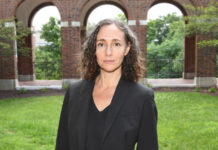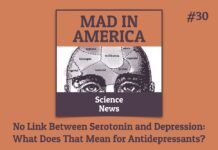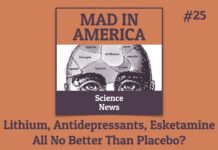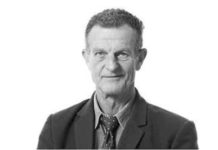Tensions in Mental Health Care in China: An Interview with Zhiying Ma
Anthropologist Zhiying Ma explores mental health care in China, including tensions between Western psychiatry and socially-oriented local frameworks.
Peer-Support Groups Were Right, Guidelines Were Wrong: Dr. Mark Horowitz on Tapering Off Antidepressants
In an interview with MIA, Dr. Horowitz discusses his recent article on why tapering off antidepressants can take months or even years.
Psychology, Personhood, and the Crisis of Neoliberalism: Jeff Sugarman on Theoretical and Critical Psychology
Tim Beck interviews Jeff Sugarman on the psychology of personhood, the influence of neoliberalism on mental health, and the need for a more philosophically informed psychology.
Toward a Critical Self-Reflective Psychiatry: An Interview with Pat Bracken
MIA’s Justin Karter interviews critical psychiatrist and philosopher Pat Bracken about the necessity of challenging received wisdom.
The Creation of a Conceptual Alternative to the DSM: An Interview with Dr. Lucy...
MIA's Zenobia Morrill interviews Lucy Johnstone about the reaction to the Power Threat Meaning Framework, her life influences, and her hopes for the future.
Responsibility Without Blame in Therapeutic Communities: Interview with Philosopher Hanna Pickard
Hanna Pickard on the elusive middle ground between personal responsibility and systemic factors in our understandings of addiction.
Opening Doors in the Borderlands: An Interview with Liberation Psychologist Mary Watkins
MIA’s Micah Ingle interviews Mary Watkins about reorienting psychology toward liberation and social justice.
The Medicalization of Women’s Suffering: An Interview with Dana Becker
MIA’s Ayurdhi Dhar interviews Dana Becker about how therapeutic culture fails to adequately address women’s suffering.
No Link Between Serotonin and Depression: What Does That Mean for Antidepressants?
Peter Simons covers in detail a new systematic review that debunks the widely popularized myth of low serotonin in depression, the “chemical imbalance theory.”
Trauma and Mental Health in Social Movements: An Interview with Janice Haaken
MIA's Emaline Friedman interviews psychologist and filmmaker Janice Haaken about how mental health discourse impacts social movements.
Psych Concepts Creep Into Our Everyday Experiences: An Interview with Nicholas Haslam
MIA’s Ayurdhi Dhar interviews Nicholas Haslam about how psychiatric terms get diluted and creep into everyday language, altering our experiences.
Lithium, Antidepressants, Esketamine—All No Better Than Placebo?
Peter Simons covers a clinical trial that found lithium ineffective at preventing suicide attempts, an essay by Allen Frances on the overdiagnosis of depression and overprescription of antidepressants, a review of the ineffectiveness and dangers of antidepressants, and an analysis that revealed that esketamine failed five of its six clinical trials.
Uncovering Radical Psychiatry and Institutional Psychotherapy in Postwar France: An Interview with Camille Robcis
MIA's Micah Ingle interviews historian Camile Robcis about radical and liberatory forms of psychiatry and psychotherapy in postwar France.
Michael O’Loughlin: Exploring Narrative Approaches to Psychological Distress
Professor Michael O'Loughlin of Adelphi University talks about his childhood experiences and how they influenced his narrative and conversational approaches to supporting those suffering with psychological distress.
The Global ‘Mental Health’ Movement – Cause For Concern
On October 10th, 2018, World Mental Health Day, The Lancet Commission on Global Mental Health and Sustainable Development published a report outlining a proposal to “scale up” mental health care globally.
Multiplicity and Mad Studies: An Interview with Jazmine Russell
In this interview, Jazmine Russell describes her journey through psychosis and mental health advocacy to embracing a multiplicity of frameworks in Mad Studies.
Context and Care vs. Isolate and Control: An Interview on the Dilemmas of Global...
MIA’s Ayurdhi Dhar explores with Arthur Kleinman how healthcare systems often overlook personal stories, focusing on treating diseases rather than individuals. Discover why this renowned Harvard psychiatrist and medical anthropologist believes in restoring humanity to medicine.
Feminism, Psychoanalysis and Critical Psychology: An Interview with Bethany Morris
MIA's Micah Ingle interviews Bethany Morris about the psychoanalytic study of film and the history of the "monstrous feminine" in psychiatry.
Psychiatry’s Cycle of Ignorance and Reinvention: An Interview with Owen Whooley
Ayurdhi Dhar interviews sociologist Owen Whooley about psychiatry's stubborn perseverance in the face of recent DSM embarrassments and the failures of the biomedical model.
Learning a Different Way: An Interview with Maori Psychiatrist Diana Kopua
MIA’s Ayurdhi Dhar interviews Diana Kopua about the Mahi a Atua approach, the global mental health movement, and the importance of language and narratives in how we understand our world and ease our suffering.
Unscientific Diagnoses Medicalize Normal Human Experiences
In this 30-minute podcast, Peter Simons reports on the latest scientific articles in psychiatry.
Moving Global Mental Health “Outside Our Heads”
On MIA Radio we interview Dr. Derek Summerfield, honorary senior lecturer at the Institute of Psychiatry in London, former Research Associate at the Refugee Studies Centre at the University of Oxford and consultant at Oxfam.
Bringing Human Rights to Mental Health Care: An Interview with UN Envoy Dainius Pūras
MIA's Ana Florence interviews United Nations Special Rapporteur Dainius Pūras about his own journey as a psychiatrist and the future of rights-based approaches to mental health.
Mad Science, Psychiatric Coercion and the Therapeutic State: An Interview with Dr. David Cohen
MIA's Peter Simons interviews David Cohen, PhD, on his path to researching mental health, coercive practices, and discontinuation from psychiatric drugs.
Psychosocial Disability Rights and Digital Mental Health: An Interview with Piers Gooding
MIA's Emaline Friedman interviews legal scholar Piers Gooding on his work on disability rights and digital mental health technologies.

































